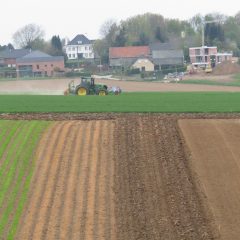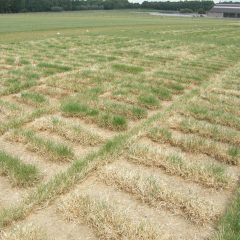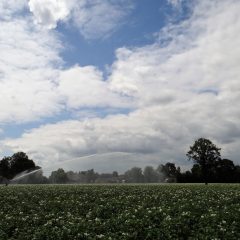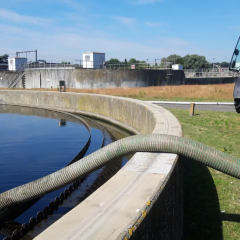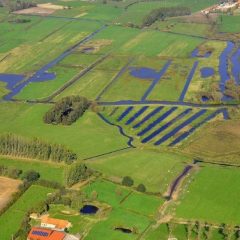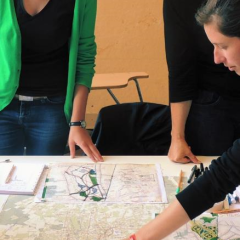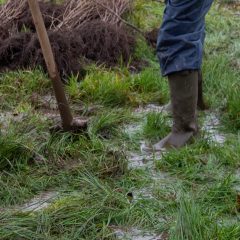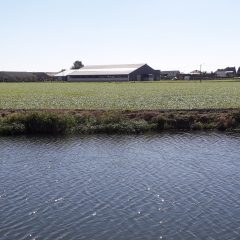Research project Irrigation 2.0: Which water when and where?
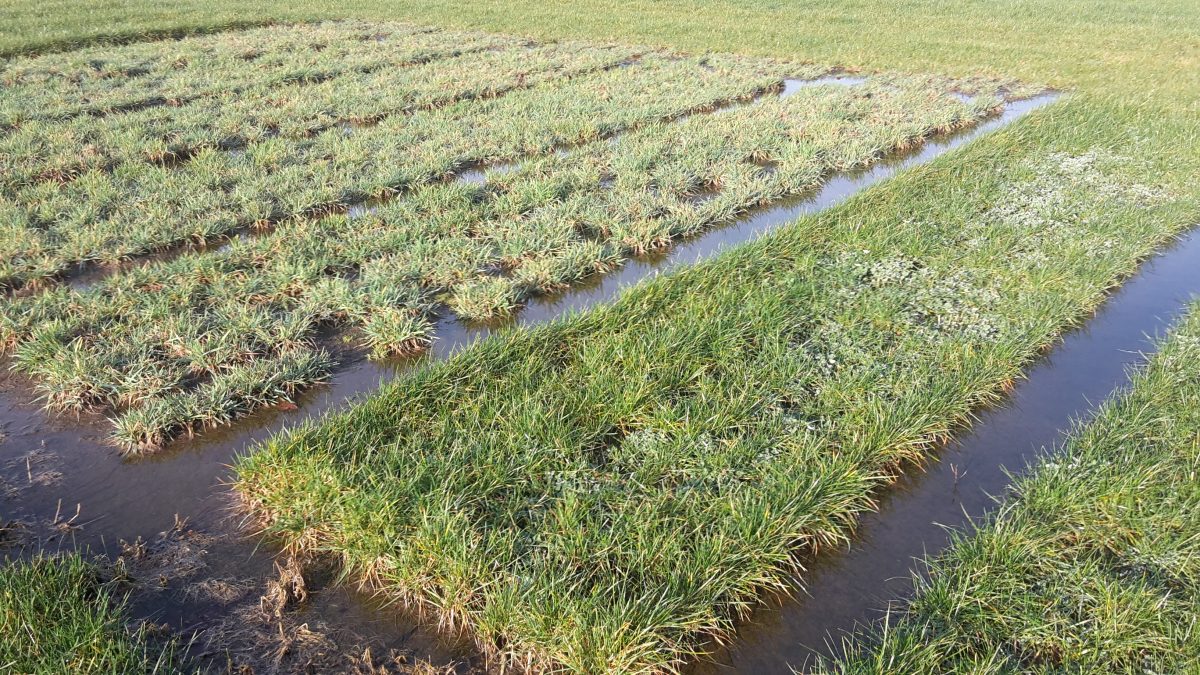
General introduction
Recent years have undeniably showed that periods of drought and water scarcity have a big impact on the agricultural sector. A smarter irrigation strategy and the efficient re-use of water therefore become priorities.
A first goal in the Irrigation2.0 project was to familiarize growers with smarter irrigation by prioritizing the fields to irrigate at the farm level. Crop growth models were used to combine crop data, satellite imagery, weather data and soil properties to predict both the soil water content and the crop growth. Second, the project aimed to clarify which alternative water sources (e.g., treated wastewater) are available and suitable for irrigation. Finally, the project investigated the effect of repeated use of alternative water sources on the crop productivity and quality, but also on soil quality.
Research approach
In this project, the AquaCrop model, developed for irrigation purposes, was calibrated and validated for three drought sensitive crops: potato, cauliflower and spinach.
To help farmers find thir way to alternative water sources, we developed the WaterRadar: www.waterradar.be. This online tool, connected to the WatchitGrow platform, contains an inventory and freely available database of the alternative water sources in Flanders, with a current focus on treated wastewater from food companies and Aquafin.
During three years (2019-2021) experimental trials were set up, where potato, cauliflower and spinach were irrigated with different types of treated wastewater, under controlled conditions. We specifically focused on treated wastewater from frozen vegetables and the potato processing sector, and on treated wastewater from households (Aquafin). The quality of the used water was carefully monitored via lab analyses, and the impact on the crop and soil quality was evaluated.
Relevance/Valorization
The calibrated and validated AquaCrop model has been made available to the broad public, via the freely accessible online platform WatchItGrow (www.watchitgrow.be). For every parcel that is marked on a farmer's account, the required simulations are run automatically. This output allows to rank all parcels of a farm according to the irrigation needs. With the WaterRadar, the grower can easily visualise which alternative water sources are available in the vicinity of the parcel or the farm. The platform shows the address and contact info of the water provider, the average daily available volume and the chloride content of the water. In the future this information system in the future can be adapted to provide also information on the water quality. All companies that are currently certified to offer water for agricultural purposes are indicated in green on the WaterRadar. Companies, indicated in red do not offer water (yet), although this can change in the future.
Apart from the water availability, the WaterRadar also allows to visualize the theoretical irrigation need at a regional scale. To do so, all crops of all parcels in Flanders are mapped. Per crop (type), a broad theoretical assessment of the extra irrigation need for the growth season is made, on top of the naturally occurring precipitation during a regular weather season. In this way, companies that like to make their wastewater available can evaluate the potential need for irrigation water in their vicinity. Furthemore, local projects can be set up that match supply to the demand of water to facilitate sustainable and circular water use.
The irrigation experiments demonstrated that the use of treated wastewater for irrigation of potatoes and vegetables has potential, but the EC and the SAR values (indicators of the salt level) are an important point of attention. Intensive use of irrigation water with high EC (> 4500 µS/cm) and SAR (>9) in consecutive years can result in yield reductions and increased salt concentrations in the soil, which leads to degradation of soil structure. Especially for sown crops like spinach, the germination phase requires specific attention. It is therefore strongly advised to analyze the quiality of the irrigation water before it is used, to avoid short- and long-term problems in the irrigated parcels.

